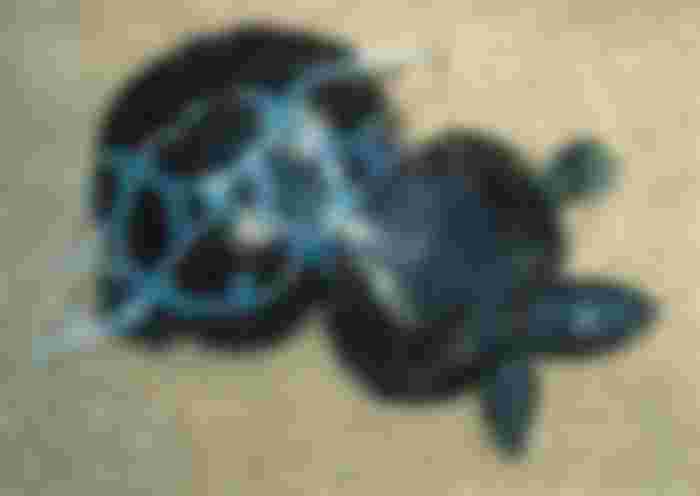In Dead Pools Swallow Coins, In The Sea Threatened By Plastic Waste.
Have you heard the sad story of a turtle that was busy yesterday on social media? A turtle in Thailand has died from swallowing hundreds of coins thrown by tourists. Actually instead of deliberately feeding the turtles with coins, the tourists tossed coins to beg for luck. The turtle, which could not tell whether it was food or not, finally devoured the coins that had been tossed by visitors. The poor turtle eventually fell ill and did not swim. When doctors operated on and dissected the turtle, sadly, 915 metal coins were found in its stomach. The life of the green turtle which is classified as rare, unfortunately cannot be saved.

This case caught the attention of the world. The green turtle, which should be protected, has a sad fate. But there is another reality that is more concerning. Not only turtles in captivity or ponds have the unfortunate fate of human activities, even turtles that are now in their natural habitat, namely the high seas, are also threatened by scattered plastic waste. Neither on land nor at sea, the fate of sea turtles is equally sad.
Even though this green turtle lives in a pond near the Royal Thai Navy, the behavior of tourists there is still irresponsible

Its habitat is in a garden pond near the Royal Thai Navy in Thailand, it is often visited by many visitors. This is exacerbated by the number of visitors who consider the pond where the turtle lives as a 'wishing well' or a place to ask for luck by tossing a coin while praying. In fact, people are also aware that this turtle, nicknamed Piggy Bank or the piggy bank, likes to eat coins. But after a long time, new people saved this turtle from its deadly habit last week.
Had an operation in March 2017, the turtle's condition, which was initially apprehensive, actually began to gradually improve. He also had time to return to swimming. Unfortunately, not long after, his intestinal tract was disrupted because his stomach was too empty after all the coins were issued. Should have lived up to 80 years, this green turtle in Thailand finally died at the age of 25 years for reasons that were clearly avoidable. Even though this animal is very rare.
You see, the fate of turtles in the wild is not much different. Instead of eating coral reefs, sea turtles have the misfortune to eat plastic waste

If the fate of Piggy Bank ends tragically near humans, the fate of turtles in the wild is not much different. If Piggy Bank is tormented by coins thrown by humans, turtles in the open sea are tormented by plastic waste scattered in the oceans. Tourists throw trash on the beach and let it be washed away by the waves. Dragged into the sea, the waste that cannot be decomposed then settles in the ocean and becomes a threat to the ecosystem there.
Not only the story of turtles whose shells are entangled in plastic waste from small to adult until their bodies are abnormal, it turns out that many turtles also consume bottles and plastic residue because they may be mistaken for food. Oh, I'm sorry, where else do you want to live for these turtles?
It is the disposal of human waste that is the problem. Many tourists who litter and do not care about the environment.
If you're honest, it's all because of humans. It was the humans who tossed the coin into the pond where Piggy Bank the turtle lived. Humans are also the ones who throw the garbage that tortures the turtles in the ocean. Because of this human activity, turtles that actually must be protected are threatened with extinction.
That's why humans must also be responsible for repairing damaged ecosystems in the ocean.
Image source from Google.com


